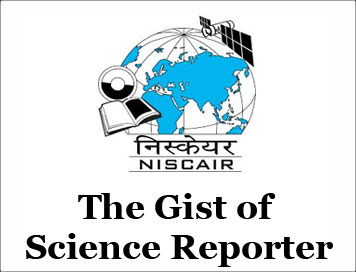(The Gist of Science Reporter) Plant Virus-like Particles as Vehicles for Therapeutic Antibodies
(The Gist of Science Reporter) Plant Virus-like Particles as Vehicles for Therapeutic Antibodies
[July-2020]
Plant Virus-like Particles as Vehicles for Therapeutic Antibodies
- Monoclonal identical immune cells are highly effective, non- toxic and can specifically target diseased cells, and antibodies originating from are therefore used in immunotherapy to treat diseases such as psoriasis, cancer and autoimmune disorders. However, since these antibodies are unable to cross the cell membrane, they have mainly been used against antigens present on the surface of cells.
- Delivering such therapeutic antibodies into a cell to target antigens present inside requires a vehicle that can cross the cell membrane. Virus-Like Particles (VLPs) have this ability. VLPs have only the structural components of a virus but not the genetic material, which makes them non-infectious. Now, researchers at the Indian Institute of Science (IISc) have developed a VLP of a plant virus called the Pepper Vein Banding Virus (PVBV) to use as a possible vehicle to deliver antibodies into a cell. These VLPs can enter mammalian cells as well, despite being of plant origin.
- Previous research by the group has shown that plant VLPs that are spherical can be used to deliver antibodies. In a new study, published in the Archives of Virology, they have shown this ability in a rod-shaped VLP. This rod-shaped VLP has an added advantage of a large aspect ratio, due to which its surface has a greater number of regions that antibodies can bind to. This allows the rod-shaped VLPs to carry more antibodies than spherical VLPs.
- The researchers also chemically combined fluorescent molecules to the surface of the VLPs, which allows them to track and therefore check if the VLPs are delivering the antibodies to the right location. This technique works if assembled viral structures are used.
- The study is a proof of concept showing the advantages of using biodegradable, non-infectious and rod-shaped plant VLPs. Further research can be conducted on animal models to test the delivery of antibodies to specific cells, such as cancer cells. This can have immense therapeutic potential for the treatment of diseases such as cancer and neurodegenerative disorders.
CLICK HERE TO DOWNLOAD FULL PDF
CLICK HERE TO DOWNLOAD UPSC E-BOOKS
Study Material for UPSC General Studies Pre Cum Mains
Get The Gist 1 Year Subscription Online
Click Here to Download More Free Sample Material
Courtesy: Science Reporter


